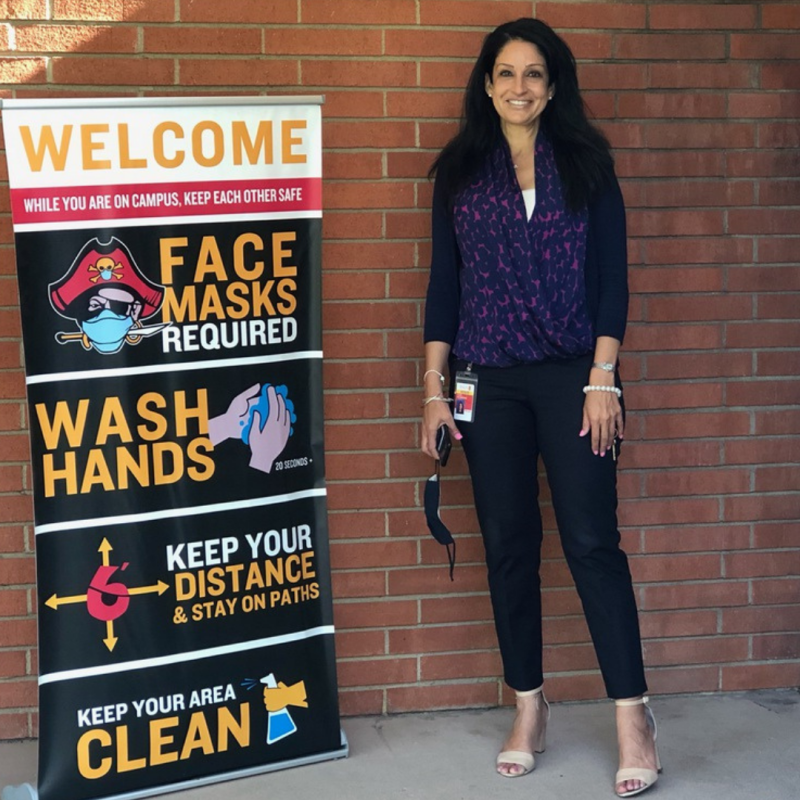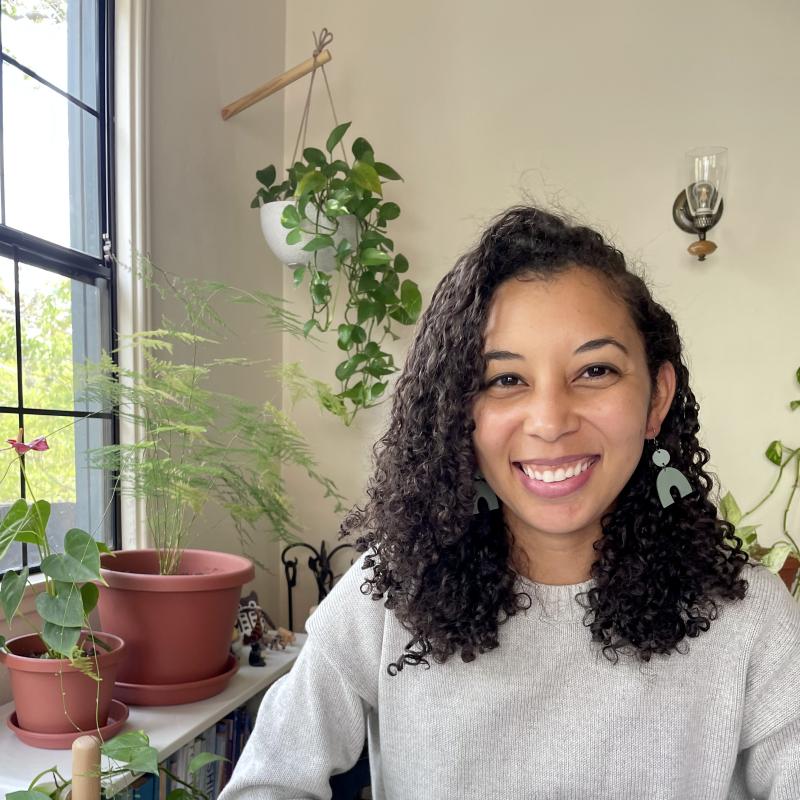
Fadia Desmond
There was no handbook to refer to a year ago when the pandemic shuttered schools and forced an on-the-fly reimagination of what education would look like, says Fadia Desmond, MA ’95, assistant principal at Jesuit High School in Sacramento, Calif. “It was like a tornado blew through and we had to rebuild, brick by brick.” Her usual responsibilities had to be put aside while she navigated an unprecedented set of challenges. “If you’d told me I’d come to work in tennis shoes and would be moving students through weekly COVID-19 screening lines … There was no place for pride. Everybody had to do what needed to be done.”
Jesuit reopened for in-person instruction last October and it reminded Desmond, a graduate of the Stanford Teacher Education Program (STEP), how profoundly grateful she is to work in education. “It’s a simple joy. I get to wake up every day and be around young people.”
Desmond, who has chaired the GSE Alumni Awards and Recognition committee for five years, credits volunteer work with the GSE for preparing her to reenter the professional world after she took a seven-year hiatus from her career to stay home with her young children. “So much of who I am and what I do, I owe to Stanford,” she says.
The crucible of 2020 made clear how important adaptability will be as more change arrives, says Desmond, who also teaches a freshman English course. And it imbued a sense of “efficacy and agency” among her colleagues that she says signals new promise. “There is an energy, a belief that we can do anything now.”
Photo courtesy of Fadia Desmond


